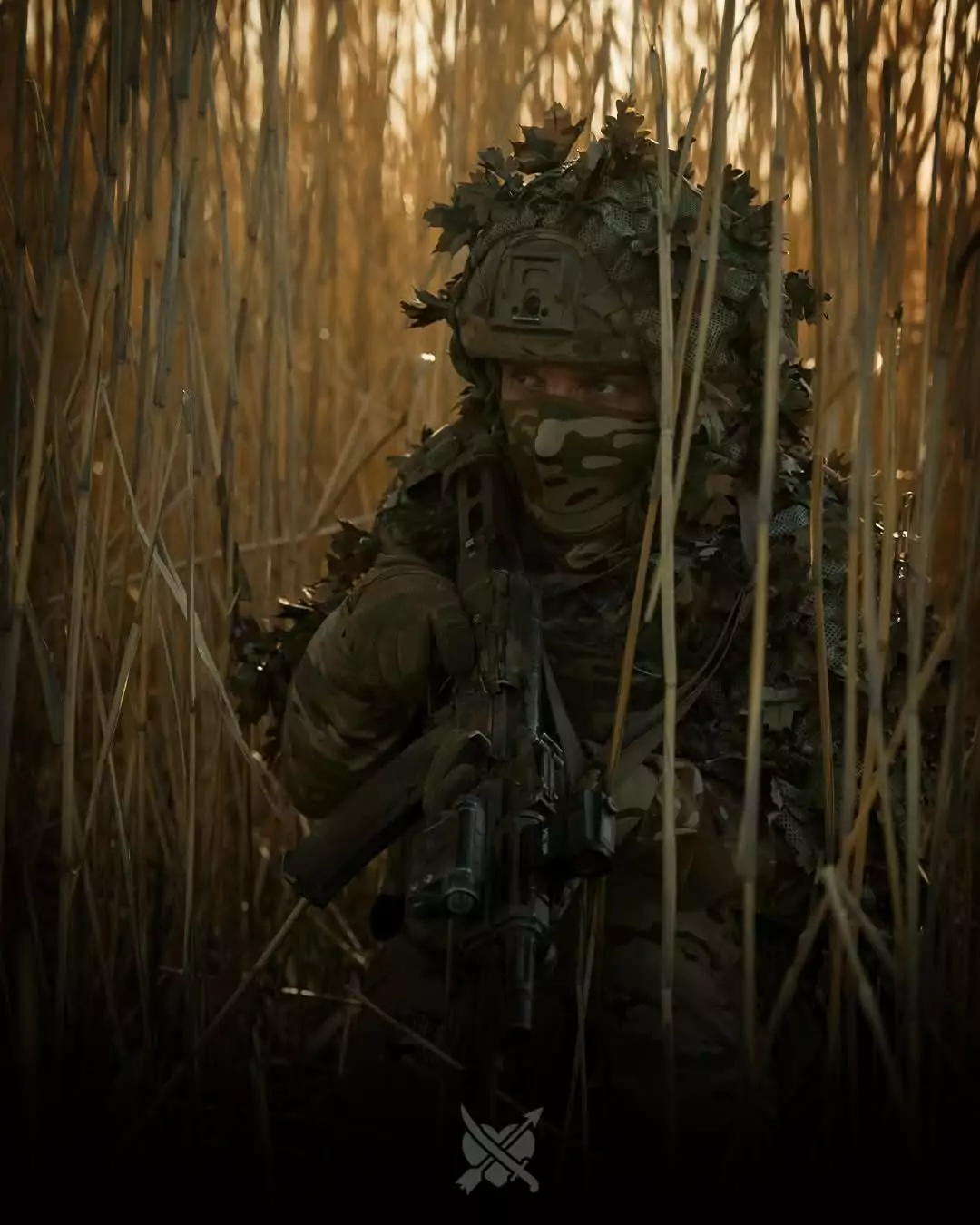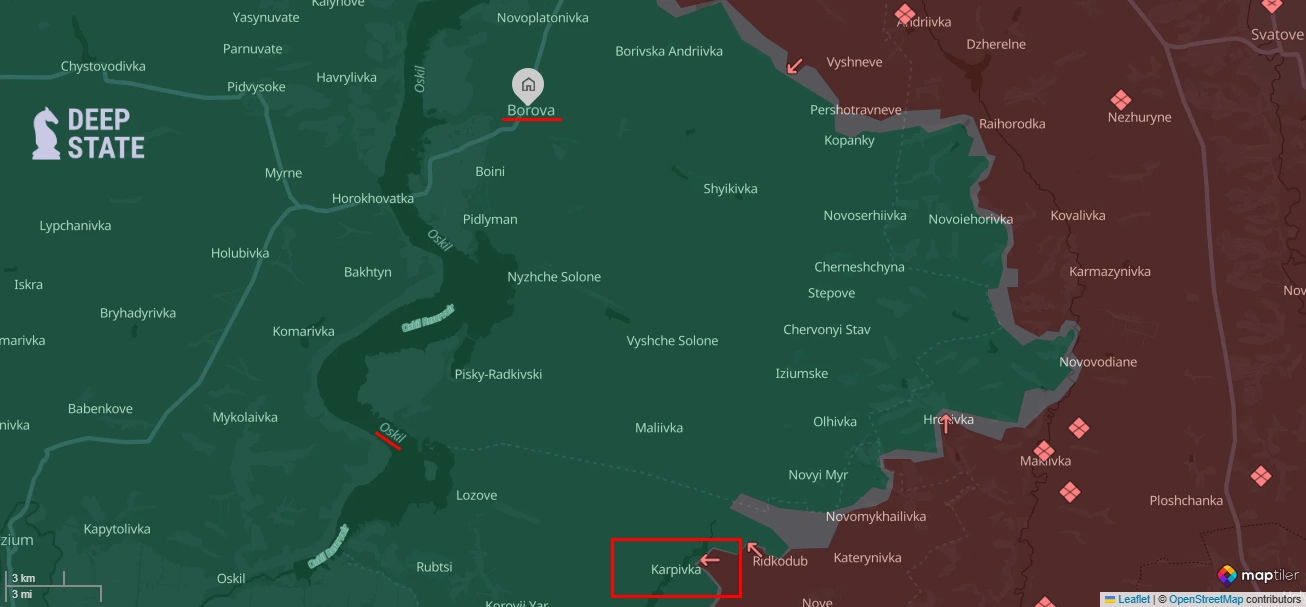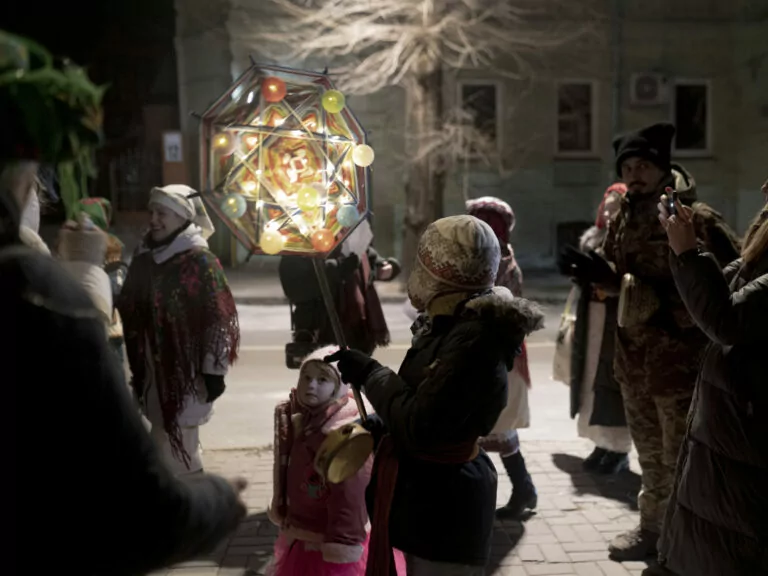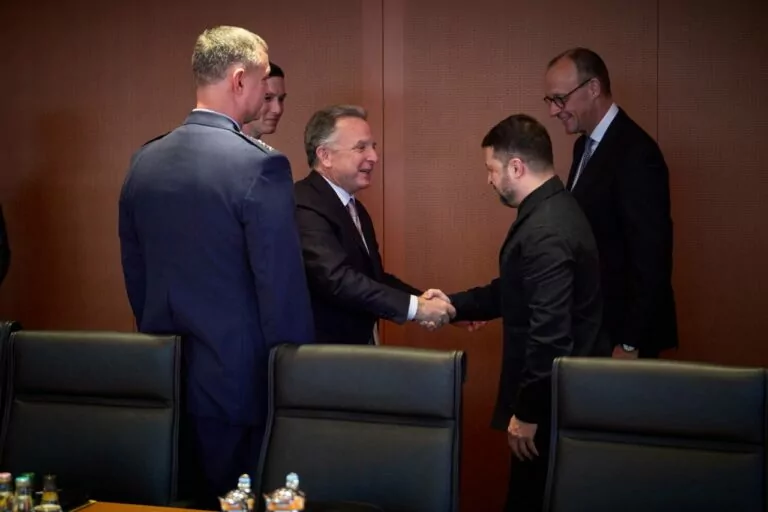UKRAINE, KHARKIV, Jul 24 — The Russian army advanced on the right bank of the Oskil river near Karpivka in Donetsk Oblast and Zelenyi Hai in Kharkiv Oblast, says the report of the analytical OSINT project DeepState, released on the night of July 23.
Radio Free Europe/Radio Liberty cites Myrsolav Hai, an officer of the Armed Forces of Ukraine, who believes the advance near Karpivka can disrupt logistics for the Kharkiv region.
“The road (the only one that runs parallel to the front line nearby — ed.) has long been under fire, so the situation there was already difficult. There is a river nearby, and it is clear that it is a convenient barrier for the Russians’ defense, so they will do everything they can to reach it. We are doing everything possible to prevent the enemy from achieving their goals,” said Hai to journalists.
Viktor Trehubov, the spokesperson for the operation-strategic military grouping “Khortytsia,” told Gwara Media that it is difficult to assess the exact situation, as active hostilities are ongoing in this area.
Pavlo Shamshyn, a spokesperson of Operational Tactical Group “Kharkiv,” said during a national telethon that Russia continues to send infantry to the west bank of the Oskil River to threaten Kupiansk.
“They (Russians) are doing this to improve and establish their logistics on the western bank, but they cannot do it. Currently, the enemy does not have any crossings that would allow it to transfer armored vehicles to the western bank of the Oskil,” said Shamshyn.
Over the past day, the General Staff recorded 10 Russian attacks near Vovchansk and nine attacks on the Kupiansk axis.
At the same time, Russia continues to attack civilians. Volodymyr Zelenskyy, the Ukrainian President, said that after proposing a ceasefire, Russia attacked Ukraine again — 103 drones and four missiles overnight.
In the morning of July 24, Russian forces launched two guided aerial bombs at the center of Kharkiv.
Read more
- Official: Kupiansk now stands less than 2 miles from frontline, tries to protect what’s left of its critical infrastructure after Russian attacks
Gwara is a Kharkiv-based independent newsroom that works to tell you about our vibrant home while it resists Russia’s war of aggression and endures through its consequences. Please, consider buying our journalists a coffee or subscribing to our Patreon to support our reporting long-term.





